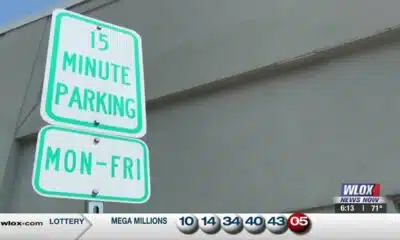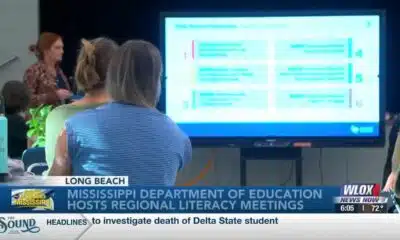News from the South - Louisiana News Feed
Proposed law to restrict noncitizen voting could affect married women
SUMMARY: The proposed Safeguard American Voter Eligibility Act (SAVE Act) could create barriers for some married women to register to vote. The bill, introduced by Texas Representative Chip Roy, aims to prevent non-citizens from voting but is criticized for its vague language, potentially requiring married women who’ve changed their last names to provide additional documentation. Legal experts and the League of Women Voters argue that the bill could disproportionately affect naturalized citizens, senior citizens, and minority communities. They believe the bill would create unnecessary hurdles and suppress voter participation, especially since non-citizen voting is rare and has not impacted elections significantly.
A proposed federal bill aimed at preventing non-citizens from voting is facing criticism from voting rights advocates who say it could create unnecessary hurdles for married women and other eligible voters.
News from the South - Louisiana News Feed
Saturday 10 PM Tropics Update: One far-off tropical wave to watch
SUMMARY: A tropical wave near Africa is emerging over the Atlantic but remains disorganized. The National Hurricane Center gives it a 60% chance to develop into a depression or tropical storm, possibly becoming Gabrielle. This system may move northward, staying over the open Atlantic and away from the Gulf, posing no immediate threat. Since the last named storm in late August, stable air, dry conditions, and increased wind shear have suppressed tropical activity in the Atlantic. The next storm names are Gabrielle, Humberto, and Imelda, with only the current wave showing potential for development at this time.
Meteorologist Alexandra Cranford tracks a lone disturbance with a chance of development on Saturday night, September 13, 2025.
News from the South - Louisiana News Feed
Haynes wanted in on Wildlife bribery scheme too, informant says
SUMMARY: Dusty Guidry, a former consultant who pleaded guilty to accepting $800,000 in bribes, testified that Assistant District Attorney Gary Haynes sought involvement in a bribery scheme at the Louisiana Department of Wildlife & Fisheries. Haynes, on trial for conspiracy, bribery, money laundering, and obstruction, was previously appointed to run Lafayette’s pretrial diversion program after supporting DA Don Landry. Guidry revealed Haynes pressured him to include him in a similar diversion program scheme at Wildlife & Fisheries, receiving checks totaling $90,000. The scheme involved splitting bribes among Guidry, vendor Leonard Franques, and former department secretary Jack Montoucet, who has also been charged. The statewide program never launched.
Read the full article
The post Haynes wanted in on Wildlife bribery scheme too, informant says appeared first on thecurrentla.com
News from the South - Louisiana News Feed
OPPJ Comprehensive Plan
SUMMARY: The Ouachita Parish Police Jury is conducting a series of community meetings to gather public input for their comprehensive plan guiding future growth. Police Jury members, including Larry Bratton from District D, emphasize the importance of reflecting residents’ voices in the master plan. Community members participated in interactive stations, allocating resources to priorities like infrastructure and downtown development, to help shape goals for the next 2, 5, and 20 years. Landscape architect Matt Pizatella and partners from Atlas support the effort. Bratton stresses that without proactive planning, the parish risks costly and less beneficial outcomes in the long term.
OPPJ Comprehensive Plan
-
News from the South - North Carolina News Feed5 days ago
What we know about Charlie Kirk shooting suspect, how he was caught
-
Local News7 days ago
US stocks inch to more records as inflation slows and Oracle soars
-
Local News6 days ago
Russian drone incursion in Poland prompts NATO leaders to take stock of bigger threats
-
News from the South - North Carolina News Feed6 days ago
Federal hate crime charge sought in Charlotte stabbing | North Carolina
-
Local News Video7 days ago
Introducing our WXXV Student Athlete of the Week, St. Patrick’s Parker Talley!
-
The Center Square6 days ago
Weapon recovered as manhunt continues in Kirk assassination investigation | National
-
News from the South - Arkansas News Feed5 days ago
NW Arkansas Championship expected to bring money to Rogers
-
News from the South - Alabama News Feed6 days ago
Huntsville Fire & Rescue Holds 9/11 Memorial Service | Sept. 11, 2025 | News 19 at 5 p.m.










































